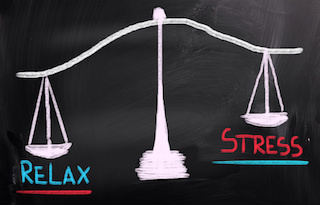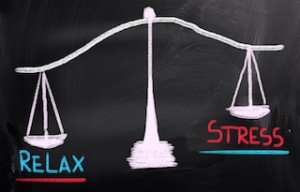“The deepest fear we have, ‘the fear beneath all fears,’ is the fear of not measuring up, the fear of judgment. It’s this fear that creates the stress and depression of everyday life.” Tullian Tchividjian
We all know a lot more about our minds now thanks to the attention researchers have been giving it. The mind is a wonderful tool for observation, conceptualisation, processing information and in short – thinking. However, when the tool becomes the master, stress is inevitable.
The mind has been likened to a computer in that it holds a lot of data and is programmed to organise that data. Each one of us programmes what goes in through unique perceptions and interpretations developed in our early childhood years. To continue the analogy, this childhood template is your mind’s operating system until you choose to change it.
Reducing or managing our stress involves becoming aware of, and updating these childhood beliefs.
What we hear, see and experience as children forms our beliefs about who we think we are and who we think we ‘should’ be. Our failure to become “who we think we should be” coupled with our belief that we have little choice, help to create distress.
So what can we do about this? Aila Accad who writes extensively on stress suggests the following tips:
Sort
Recognise the areas of life in which you do or do not have control. We have no control of anything outside of ourselves. We only have control of everything inside of us. However most of us blame everything outside of us for our stress, and direct most of our precious time and energy into fruitless efforts to control the uncontrollable. This will include:
* Time – not enough, what happened in the past, worry about the future.
* Nature – illness, getting older, fear of dying, weather.
* Other People – what they think, feel, say, do.
We are likely to reduce our stress when we put our time and energy into the one area where it will pay off, where you have total control and power– in us.
Focus
Although we can make informed choices by learning from the past, it is important to focus our attention on the present moment. The past is a memory and the future has not arrived.
Observe
If you are reacting, whether it is fight – resisting the idea, or flight – being distracted and not wanting to continue, try to observe what is going on in your mind. This is often called the ‘observer mind’ and I imagine it as myself looking down at me and my reactions. It is a very good technique to try to withdraw and not act in a way that you may regret.
If we keep a journal of our observations, it may give us some insight into patterns we may use. Looking over your journal can give you clues to the pattern or a rule that still guides your choices today. One may be “If I say what I really think, people won’t like me.”
Stop, Drop & Replace
Take decisive action to stop the “Inner Critic”. Whenever we hear that inner voice saying its ‘should’,’ should not’, or making judgments- act to stop the thought.
Try to drop the image of who we think we ‘should’ be. A helpful strategy when we hear the words ‘should’ or ‘should not’ is to ask the question: “Who made that up?”
Replace the old rules with supportive ones. From the earlier example, “If I say what I really think; people won’t like me,” I counter with, “By speaking truthfully, other people will connect with that and engage with me.”
I hope you find these tips helpful and if there is anything you wish to discuss about this article please contact me by email.
“The time to relax is when you don’t have time for it.”
Sydney J. Harris
By Ron Tustin. Read more here.
Revive and Thrive Coaching, Professional Coach.
Website: www.reviveandthrivecoaching.com
Email: info@rtc.org.nz
Motivating baby boomers to see the world with fresh eyes.










jan - 9 years ago
I have found The Tapping Solution, also known as EFT very effective for reducing stress, anxiety and body pain. I recently gave two workshops on managing pain and stress using the tapping solution and creativity at the New Zealand Polio Conference. I had feedback from participants to the effect that they had slept the whole night through for the first time since contracting polio. Check out Nick Ortner and http//www.thetappingsolution.com on the internet.
The other strategy I have found very effective is the Silva Mind Control relaxation meditation. This is also free on the internet. I use it every night to go to sleep. It works like magic.